Sign up for our newsletter
Subscribe to our emails
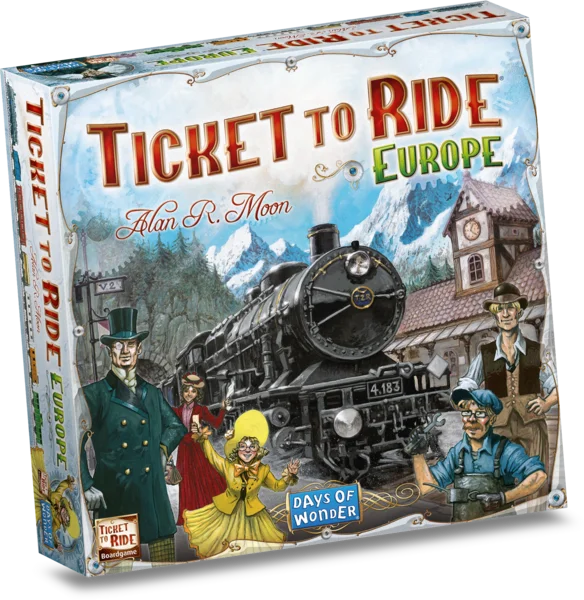
Ticket to Ride: Europe takes you on a new train adventure across Europe. From Edinburgh to Constantinople and from Lisbon to Moscow, you'll visit great cities of turn-of-the-century Europe. Like the original Ticket to Ride, the game remains elegantly simple, can be learned in 5 minutes, and appeals to both families and experienced gamers. Ticket to Ride: Europe is a complete, new game and does not require the original version.More than just a new map, Ticket to Ride: Europe features brand new gameplay elements. Tunnels may require you to pay extra cards to build on them, Ferries require locomotive cards in order to claim them, and Stations allow you to sacrifice a few points in order to use an opponent's route to connect yours. The game also includes larger format cards and Train Station game pieces.The overall goal remains the same: collect and play train cards in order to place your pieces on the board, attempting to connect cities on your ticket cards. Points are earned both from placing trains and completing tickets but uncompleted tickets lose you points. The player who has the most points at the end of the game wins.Part of the Ticket to Ride series.
£44.99 £40.50

In this classic word game, players use their seven drawn letter-tiles to form words on the gameboard. Each word laid out earns points based on the commonality of the letters used, with certain board spaces giving bonuses. But a word can only be played if it uses at least one already-played tile or adds to an already-played word. This leads to slightly tactical play, as potential words are rejected because they would give an opponent too much access to the better bonus spaces.
£21.99 £19.80
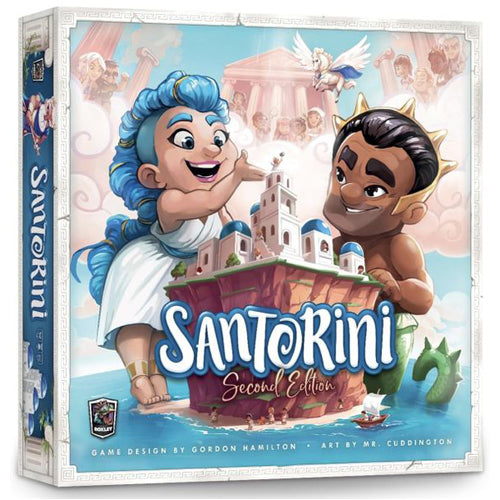
Santorini is an accessible strategy game, simple enough for an elementary school classroom while aiming to provide gameplay depth and content for hardcore gamers to explore, The rules are simple. Each turn consists of 2 steps: 1. Move - move one of your builders into a neighboring space. You may move your Builder Pawn on the same level, step-up one level, or step down any number of levels. 2. Build - Then construct a building level adjacent to the builder you moved. When building on top of the third level, place a dome instead, removing that space from play. Winning the game - If either of your builders reaches the third level, you win. Variable player powers - Santorini features variable player powers layered over an otherwise abstract game, with 40 thematic god and hero powers that fundamentally change the way the game is played.
£43.20
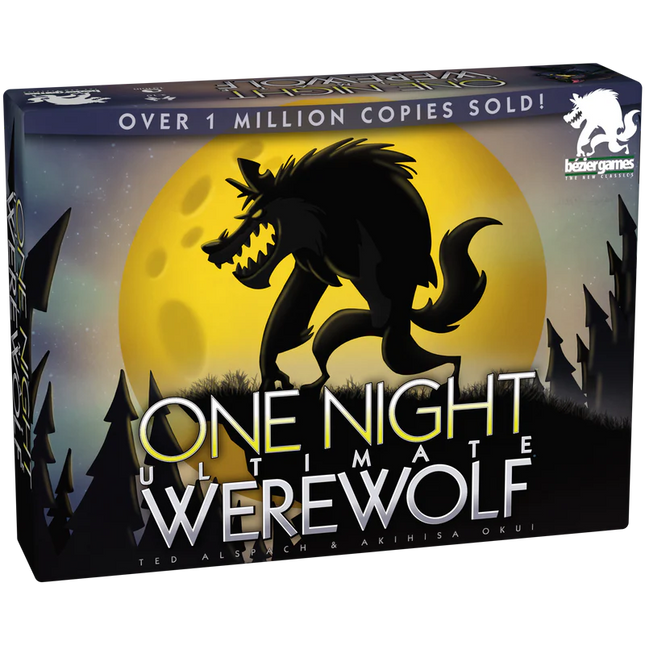
No moderator, no elimination, ten-minute games.One Night Ultimate Werewolf is a fast game for 3-10 players in which everyone gets a role: One of the dastardly Werewolves, the tricky Troublemaker, the helpful Seer, or one of a dozen different characters, each with a special ability. In the course of a single morning, your village will decide who is a werewolf...because all it takes is lynching one werewolf to win!Because One Night Ultimate Werewolf is so fast, fun, and engaging, you'll want to play it again and again, and no two games are ever the same.This game can be combined with One Night Ultimate Werewolf Daybreak.
£24.99 £22.50
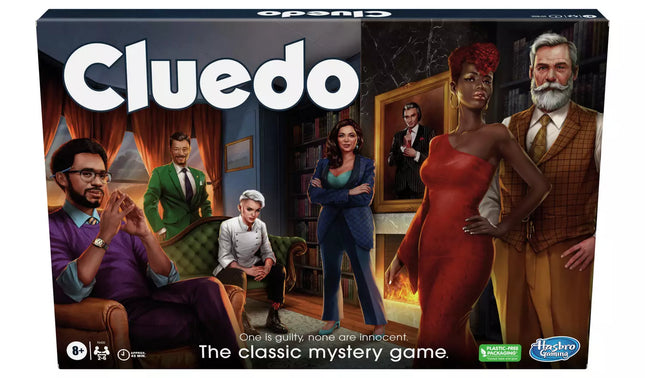
Who killed Boddy Black? Solve the mystery in this suspenseful Cluedo board game. When six guests arrive at Boden Blacks mansion, none are certain what to expect. But when their host turns up dead after revealing a sinister blackmail scheme, the pressure is on. Race against the other players to crack the case by gathering clues and narrowing down choices. Each player tracks their clues in a detective notepad and eliminates information to investigate who killed Mr Black; where in the mansion they did it and what weapon was used. Roll a magnifying glass icon? Draw a Clue card to add to the intrigue. A player might open a new secret passage or get to name a weapon they want revealed. Be the first to make the correct accusation and win the game. This Cluedo murder mystery game is beautifully reimagined with a dazzling cast of characters, luxurious setting, and fresh storyline. It's a fun game for families, friends, mystery fans and children.
£25.00 £22.50
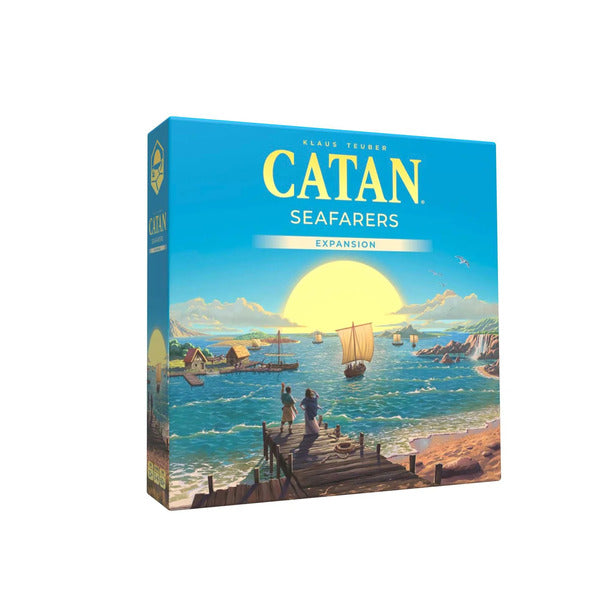
Not everyone’s content with a simple life on the shore. You? Your restless spirit cannot resist the call of the open sea! While your hometown grows and thrives, you and your rival Seafarers seek new thrills, planting fresh roots and building spectacular wonders on smaller islands in the Catanian archipelago. The rumours of gold and resources are so alluring that not even pirates, dense fog, or rough waters will keep you from your goal.
£45.00
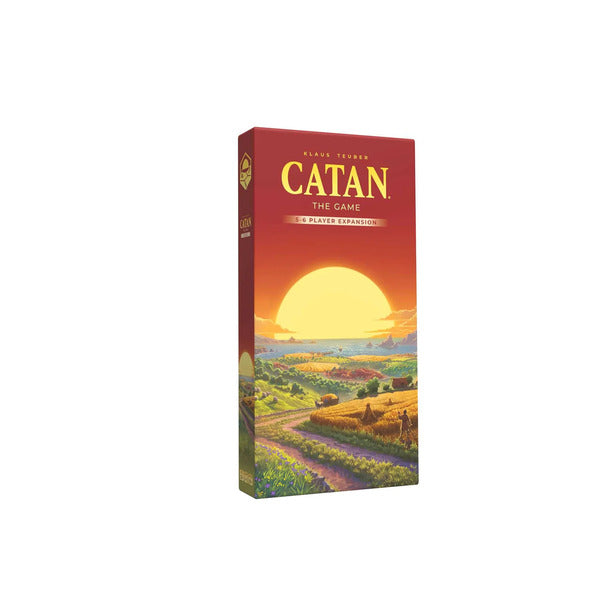
Bring more friends to the island of Catan! Adventures this big deserve to be shared with even more friends. Invite up to two additional players to your CATAN game for even more trading and building fun! The 5-6 Player Expansion adds additional pieces and components for more players and adds a simple turn-taking mechanism to engage more players throughout
£30.00 £27.00

Colour may vary
£4.00
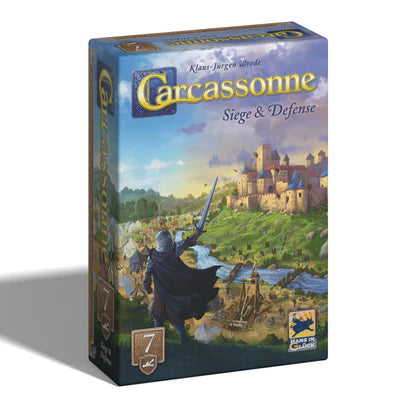
This expansion for Carcassonne, puts cities under attack introducing new Fortresses and siege mechanics. Invest meeple to strengthen the defence posts and score points. Includes : 18 land tiles, 2 fortress tiles, 3 catapults, and 12 standard meeples for enhanced gameplay. Part of the Carcassonne series
£14.99 £13.50
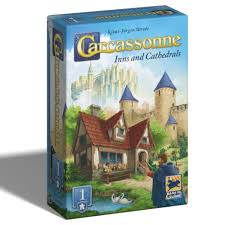
Carcassonne: Inns & Cathedrals is the first major expansion for Carcassonne and introduces a few new aspects to the game. There are a couple of completely new kinds of tiles - the inns and cathedrals. There are also new tiles that present cities, roads, and cloisters in new shapes. Additionally, each player gets a "big meeple" which counts as two regular meeples. Another whole set of meeples means 6 players can now enjoy the game. Finally, a set of scoring cards helps make score-keeping a little clearer.Part of the Carcassonne series.
£14.99 £13.50
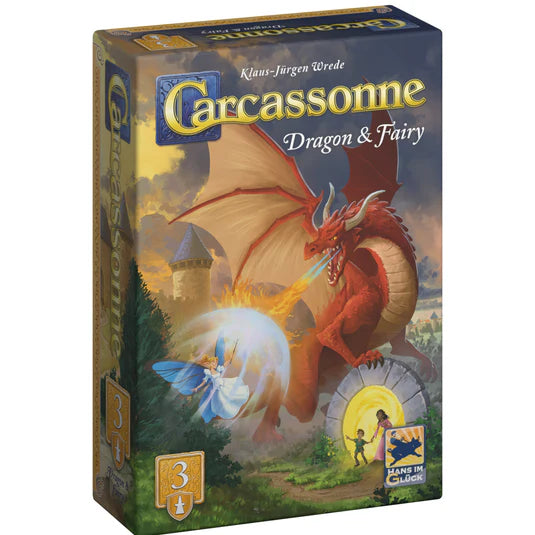
In this the Third expansion for Carcassonne, a hungry dragon roams the countryside. Plan ahead to stay clear of the dragon’s path, summon the fairy for protection or use magic portals to regain lost features. Contents: 26 Land Tiles, 1 Source and 1 Lake tile and Dragon and 1 Fairy Meeple
£14.99 £13.50
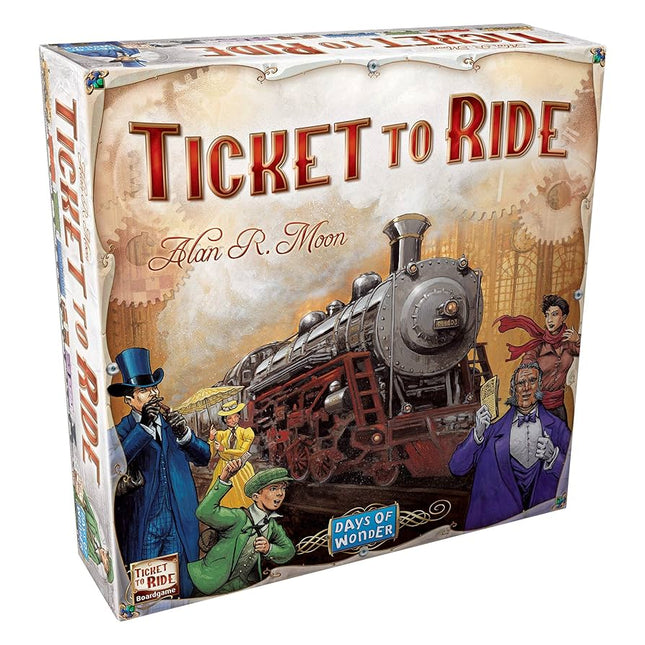
With elegantly simple gameplay, Ticket to Ride can be learned in under 15 minutes. Players collect cards of various types of train cars they then use to claim railway routes in North America. The longer the routes, the more points they earn. Additional points come to those who fulfill Destination Tickets – goal cards that connect distant cities; and to the player who builds the longest continuous route."The rules are simple enough to write on a train ticket – each turn you either draw more cards, claim a route, or get additional Destination Tickets," says Ticket to Ride author, Alan R. Moon. "The tension comes from being forced to balance greed – adding more cards to your hand, and fear – losing a critical route to a competitor."Ticket to Ride continues in the tradition of Days of Wonder's big format board games featuring high-quality illustrations and components including: an oversize board map of North America, 225 custom-molded train cars, 144 illustrated cards, and wooden scoring markers.Since its introduction and numerous subsequent awards, Ticket to Ride has become the BoardGameGeek epitome of a "gateway game" -- simple enough to be taught in a few minutes, and with enough action and tension to keep new players involved and in the game for the duration.Part of the Ticket to Ride series.
£44.99 £40.50
Subscribe to our emails